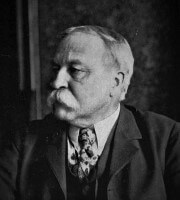by Lawrence Raab
The poem that argues successfully against death
finds its place in the book you can buy
in stores that do not sell poetry.
If it’s a bad poem, and it is,
does that really matter? Sorrow
doesn’t want the truth, doesn’t need
to think. I know what you’re feeling,
the poem confides, whispering it
like a friend. Promises were made,
then broken. Exactly how did we expect
the world to work? Reality, Walker Evans said,
is not totally real. When I call
the Automated Flight Information System
I’m told: “It’s OK to say “I don’t know.” “
But I don’t. There are other ways
to check on a plane. A chickadee, trapped
beneath the plastic netting that keeps
the deer from eating our bushes, flutters
and thrashes. All she has to do
is let herself fall, then walk away.
If she were a person, and the net
a metaphor for other entanglements,
odds are she’d still be struggling.
At lunch my friend tells me he’s spent
most of the morning looking for another word
for “camouflage.” Disguise, cloak, mask.
He’s tried them. Curtain, mantle, shade.
It’s not the meaning. It’s the context.
Maybe just the sound. If reality
isn’t totally real, how real is it?
In an old anthology of poems, beside a line
about the wind rising over water and the dark
engulfing the trees, somebody’s written:
Ah, too true! A sigh: truer than merely true.
Sadder than a fact. And this person
needed to write it down in the margin,
as if to tell me, leafing through
that book as a boy, what I didn’t know.
Wind breaks the water’s surface.
Evening falls. Nothing is only itself.





